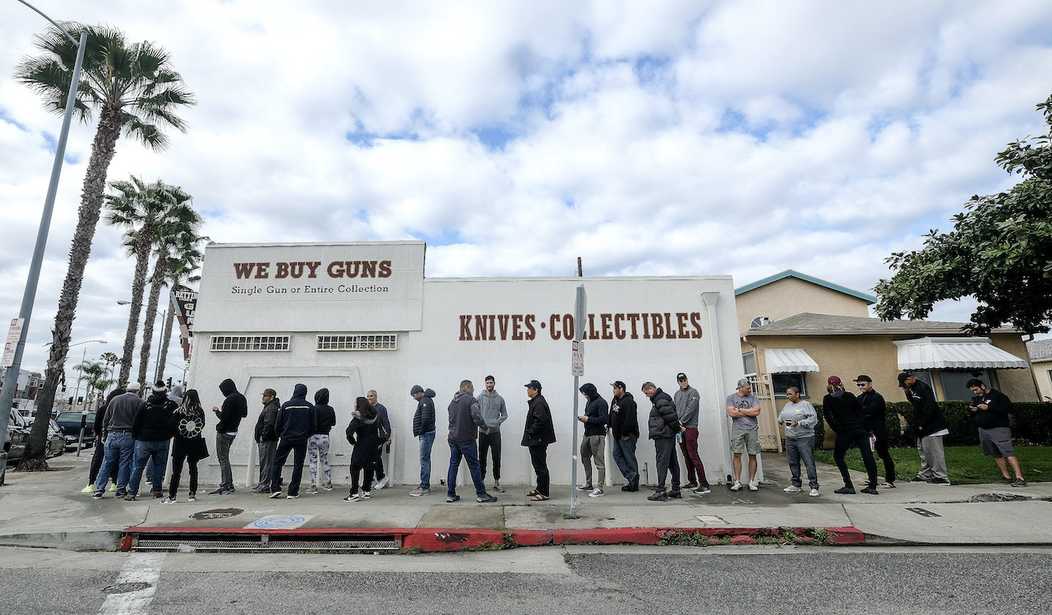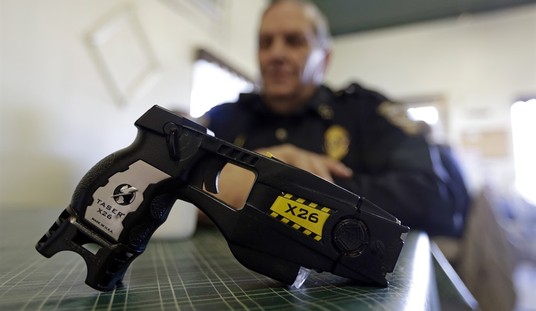As Americans flock to gun stores in record numbers to purchase firearms and ammunition to protect themselves and their families, they’re likely finding shelves that are almost picked clean of ammunition and a limited supply of handguns, rifles, and shotguns for sale at their local gun shop. Phillip Kastner, materials manager at Trader Bill’s gun shop in Arkansas, tells the Hot Springs Sentinel-Record that a “multi-headed monster” is to blame for the current shortages.
“As far as the ammo is concerned, the number one thing you have to have in order to make ammunition is raw materials, being lead and copper,” Kastner said. “So all of the lead mines in the United States are in the state of Missouri; Missouri shut them down the first of March. All of the copper mines are in South America; South America shut them down in April. … The lead mines are now open in Missouri, but getting copper for the casings is one of the choking points.”
Just a couple of weeks ago news agency Reuters reported that Chile’s copper mining industry was at a tipping point, thanks to a surge in coronavirus cases among mine workers. At the moment, production is actually up over 2019 levels, but that could soon change.
Patricio Elgueta, president of Chile’s Federation of Copper Workers (FTC), an umbrella group for Codelco’s unions, said miners are exhausted and scared of falling ill but keep working to make ends meet.
Elgueta said unions were weighing a proposal from a regional roundtable of healthworkers, politicians and social groups to draw down production to a “minimum” at all of the mines around the hard-hit city of Calama in order to sanitize them.
The Antofagasta region, where Calama is located, accounts for more than half of Chile’s mine production, according to state copper agency statistics.
Meanwhile, Elgueta said emphasis at the major mines had necessarily shifted to processing ore as companies have scaled back staffing by around 40%. Contract work has already largely been slashed.
“You focus on production and neglect maintenance… it’s not sustainable,” Elgueta said in a phone interview. “First you exhaust the workers, then you cause damage to the equipment, then come delays.”
Workers at two mines in Chile have voted to strike over current working conditions, though the Chilean government is hoping to avoid a walkout through mediation. The government’s deadline of July 22nd is quickly approaching, however, and by the end of this week it’s possible we could see the country’s two largest copper mines shut down completely.
So yes, he supply side of production is definitely having some issues, as Kastner noted, but those problems are exacerbated by the surge in demand.
“The other problem is what happened a month ago with the riots,” Kastner said. “COVID hurt the production side of the equation, but the riots spiked the demand side of the equation. So not only are you getting few products into the system, you have a huge demand on the retail side of the equation of people wanting to buy guns and ammunition to protect their houses and homes from rioting. Even though we don’t have that problem in the state of Arkansas, you do have that problem everywhere else. And it has exhausted the pipeline of materials that is coming through.”
June’s NICS background check numbers reached record highs, but I’m very curious to see what July’s numbers look like. At some point, it seems likely that the background check numbers will see a noticeable decline; not because the demand has ceased but because there simply aren’t enough guns available to satisfy that demand. I’m not sure we’ve reached that particular tipping point yet, but as long as the “multi-headed monster” is still around, it’s a distinct possibility.









Join the conversation as a VIP Member